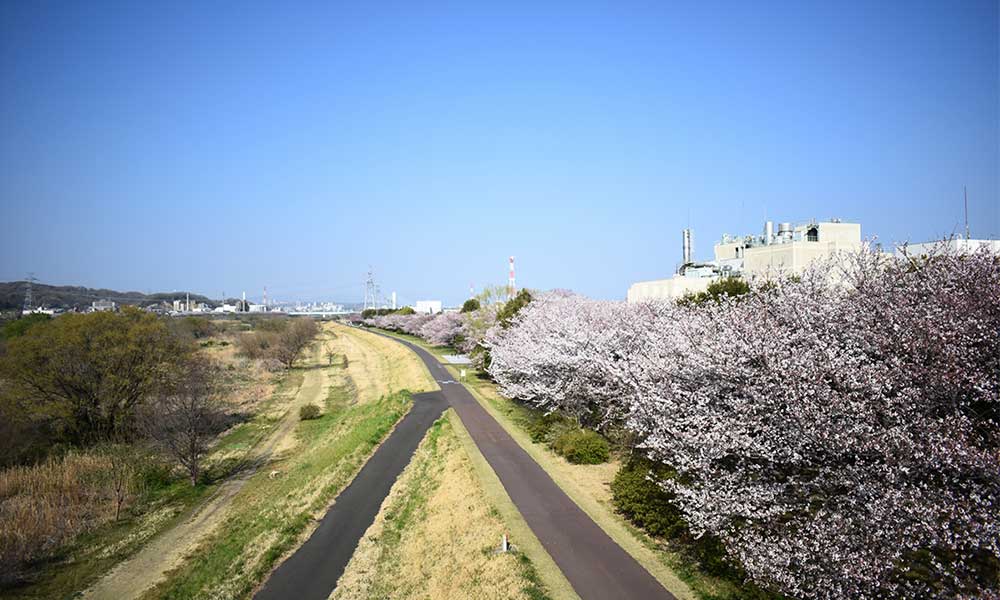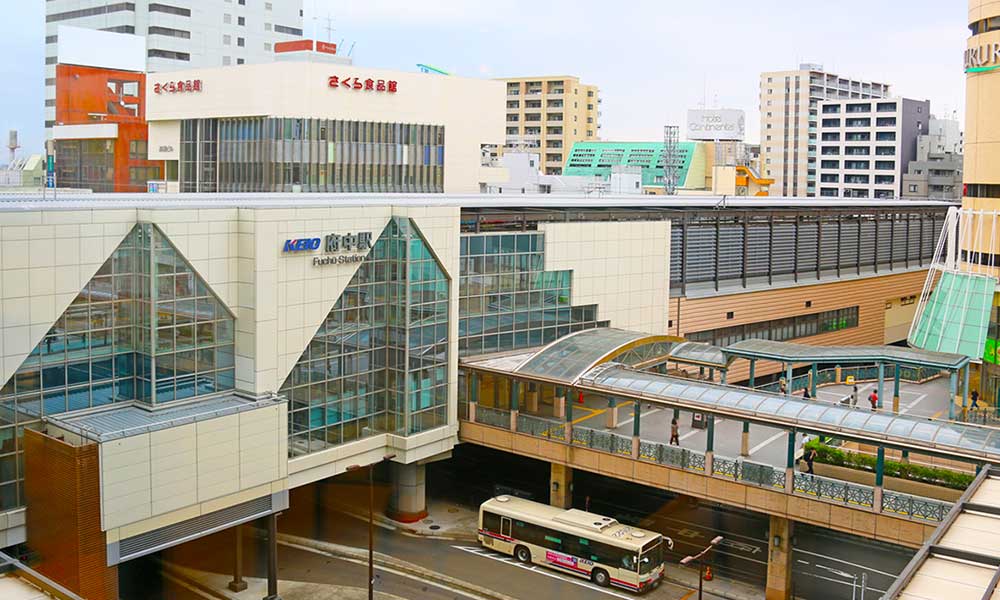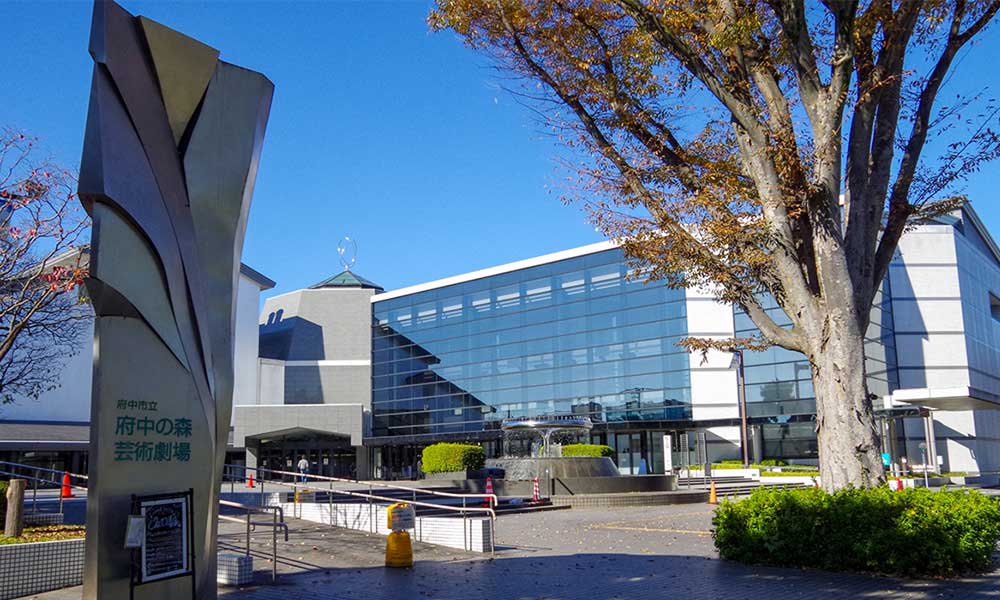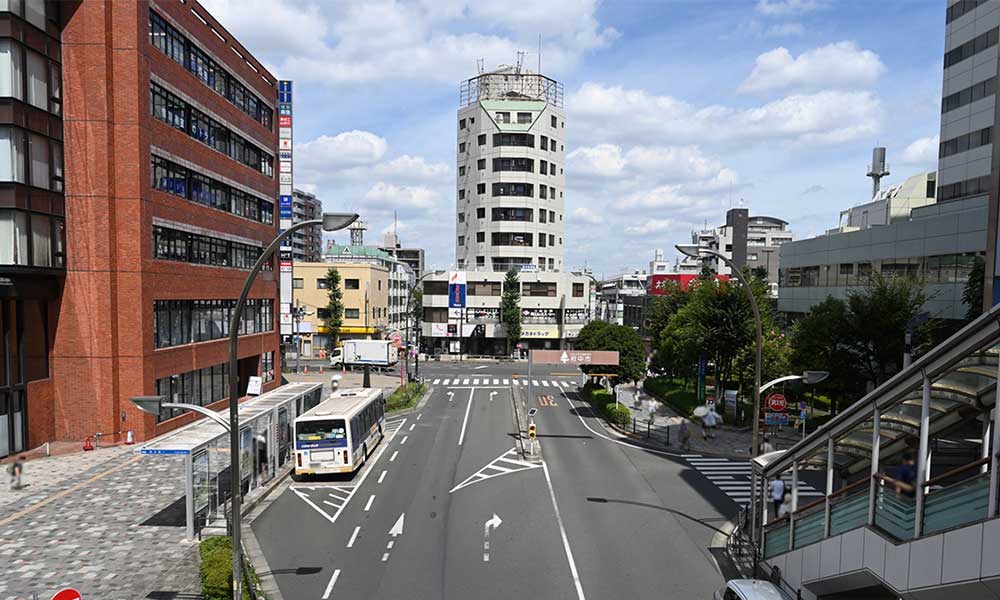Fuchu City City, Tokyo東京都府中市
Living in Fuchu City, Tokyo

We have Summarized the livability of Fuchu City, Tokyo.
KITATAMA AREA北多摩地域
-
- TACHIKAWA CITY 立川市
-
- NISHITOKYO CITY 西東京市
-
- MUSASHINO CITY 武蔵野市
-
- HIGASHIKURUME CITY 東久留米市
-
- MITAKA CITY 三鷹市
-
- CHOUFU CITY 調布市
-
- KOMAE CITY 狛江市
-
- KIYOSE CITY 清瀬市
-
- HIGASHIMURAYAMA CITY 東村山市
-
- KODAIRA CITY 小平市
-
- KOGANEI CITY 小金井市
-
- FUCHUU CITY 府中市
-
- KOKUBUNJI CITY 国分寺市
-
- KUNITACHI CITY 国立市
-
- HIGASHIYAMATO CITY 東大和市
-
- MUSASHIMURAYAMA CITY 武蔵村山市
-
- AKISHIMA CITY 昭島市
CONTENTS
- What kind of place is Fuchu City, Tokyo?
- Fuchu CityPR video
- How is the traffic situation in Fuchu City?
- How are the rent and land prices in Fuchu City?
- How is childcare and education in Fuchu City?
- How about shopping in Fuchu City?
- How about jobs and recruitment in Fuchu City?
- Fuchu City’s unique subsidy/subsidy system
What kind of place is Fuchu City, Tokyo?

Fuchu City: A city where history and modernity blend together
It is located almost in the center of Tokyo and has an area of approximately 29.43 square kilometers.
It is bordered by Koganei City and Kokubunji City to the north, Mitaka City and Chofu City to the east, Inagi City and Tama City to the south, and Hino City to the west.
It has a population of approximately 260,000 and approximately 129,000 households. (As of December 2022)
The name Fuchu means “location of the provincial capital,” and is said to come from the fact that it was called “Fuchu” because it was the location of the provincial capital of Musashi Province.
The Tama River flows through the southern part of Fuchu City, and the terrain is generally flat.
The history of Fuchu City dates back to the time when it was the provincial capital of Musashi Province after the Taika Reforms in 645, and it is said to have been a political and economic center since ancient times.
During the Kamakura period, the Kamakura Kaido road ran through the area, and in the Edo period, Fuchu-juku, a post station on the Koshu Kaido road, was located here, making it a bustling transportation hub with people coming and going.
During the Taisho period, several railways were opened, and the area became more active as the transportation network developed.
During the Showa period, military facilities were built one after another, but after the war, residential development progressed and the area developed into one of Tokyo’s leading commuter towns.
In 1954, the towns of Fuchu, Tama, and Nishifuchu merged to form Fuchu City.
Today, Fuchu City is a city with commercial facilities and residential areas spreading out around Fuchu Station, with well-developed infrastructure such as large hospitals and universities. It is also a city with a natural environment that is a good distance from the city center, and is attracting attention as a good place to live.
Fuchu City is also known for having Tokyo Racecourse, and the JRA Horseracing Museum on the premises is a great facility where you can view the history of horse racing in Japan and exhibits of famous horses and jockeys for free. There are also playground equipment for small children and a chance to try waving the starting flag, making it a facility that the whole family can enjoy.
There are also plenty of other tourist attractions.
Suntory Natural Water’s Musashino Brewery is a popular spot where you can see the beer brewing process and even sample the beer on guided tours.
Fuchu City Local Forest Museum is a vast 14-hectare botanical garden that’s great for just strolling around, and it’s a popular, cost-effective facility with a planetarium and a pond where you can splash around in the summer.
“Okunitama Shrine” is located about a 5-minute walk from Fuchu Station on the Keio Line. It is a famous shrine that was founded in 111 and is also a power spot. Every year, the shrine holds the Okunitama Shrine Annual Festival (Kurayami Festival) from April 30th to May 6th to commemorate the shrine’s founding. It is said that the name comes from the fact that in the past, a portable shrine was carried around at night, and the festival is crowded with about 700,000 people every year.
PR video of Fuchu City, Tokyo
COME JOIN US ! FUCHU CITY TOKYO – Fuchu City, Tokyo
Fuchu: A city where you can live comfortably, building bonds and paving the way to the future
How is the traffic situation in Fuchu City?

Fuchu City has good access to the city center through its well-developed rail and bus systems.
There are 5 train lines in Fuchu city with 14 stations. It takes about 47 minutes to get from the station to Tokyo station and about 26 minutes to get to Shinjuku station.
| Fuchu Station | Keio Line |
| Fuchu Honmachi Station | JR Musashino Line・JR Nambu Line |
| Tama Cemetery Station | Keio Line |
| Musashinodai Station | Keio Line |
| Higashifuchu Station | Keio Line・Keio Racecourse Line |
| Bubaigawara Station | JR Nambu Line・Keio Line |
| Tama Station | Seibu Tamagawa Line |
| Fuchu Racecourse Main Gate Station | Keio Racecourse Line |
| Shiraitodai Station | Seibu Tamagawa Line |
| Nishifu Station | JR Nambu Line |
| Nakagawara Station | Keio Line |
| Kitafuchu Station | JR Musashino Line |
| Koremasa Station | Seibu Tamagawa Line |
| Keiyotenjomae Station | Seibu Tamagawa Line |
Keio Bus and Odakyu Bus are available for local bus routes within Fuchu city.
You can also use the community bus “Chu Bus,” which provides access to major facilities within Fuchu city.
You can also use express buses from Fuchu Station on the Keio Line to Haneda Airport and Narita Airport.
There are two expressways that can be accessed from Fuchu city. There are two entrances and exits.
| Chuo Expressway | Inagi IC |
| Inagi Bridge | Inagi IC・Fuchu City IC |
The road that passes through Fuchu City is National Route 20, which runs from Chuo Ward in Tokyo through Kanagawa and Yamanashi Prefectures to Shiojiri City in Nagano Prefecture.
The Keio Line, a major line, makes the location relatively convenient for accessing urban areas such as Shinjuku and Tokyo.
Because it is close to the city center, trains are crowded during rush hour. Also, since the only main line is the Keio Line, access to other train lines is limited.
How are the rent and land prices in Fuchu City?

Fuchu City is a pleasant place to live, with quiet residential areas, parks and commercial areas.
According to information from a real estate information website, the average rent in the ward for a newly built apartment within a 10-minute walk from the station is about 78,000 yen for a 1K and 114,000 yen for a 2DK.
The average land price is about 1.16 million yen per tsubo.
The average price of a newly built apartment is 57.31 million yen, the average area is 67.09 m2, and the average price per tsubo is 2.824 million yen per tsubo. (As of 2018-2022)
Fuchu City is a popular area that combines both a location close to the city center and a natural environment. There are various types of housing, including condominiums, apartments, and detached houses, and there are fewer high-rise apartments than in the city center, making for a relatively calm residential environment.
Rent and prices are slightly lower than in the city center. However, rents tend to be higher around stations and in areas with good access compared to other areas. Prices are lower than in the city center, but some high-end residential areas and areas around commercial facilities can be quite pricey.
There are many quiet and tranquil residential areas. There is also an abundance of natural surroundings, making this an attractive area for those looking for an environment close to nature.
Despite being close to Shinjuku and other areas, the average prices for rent and land tend to be low.
Housing prices tend to be relatively high in some areas. In particular, areas near train stations and areas with good accessibility are likely to experience high demand and property prices may rise.
How is childcare and education in Fuchu City?

Fuchu City is a city with a wide range of educational institutions, child-rearing support, and lively local events.
Fuchu City has 45 nurseries, 17 kindergartens, 24 elementary schools, 11 junior high schools, 6 high schools, 5 junior colleges/universities, and 2 vocational schools.
The “Child Medical Expense Subsidy” covers children up to 18 years old (until March 31st after they reach 18 years old) for both outpatient and inpatient care, and is fully subsidized.
Child allowances are provided: 15,000 yen for children under 3 years old, 10,000 yen for the first and second children aged 3 years old or older and not yet entering elementary school, 15,000 yen for the third child and onwards, and 10,000 yen for junior high school students.
Fuchu City also has its own unique support system.
The Fuchu Mama Papa Support Team distributes support coupons that can be used to cover the costs of dispatching housework and childcare helpers. This is a great service that can be used at a low price when you need help with baby care or daily housework.
The Temporary Baby Care Service is a support system that provides temporary baby care at a relatively low price. In addition to unavoidable circumstances such as childbirth or illness, parents can also use this service to refresh themselves by taking lessons or shopping.
The “Twilight Stay Program” is also a relatively low-cost support program for households with children aged 2 to 6th grade. It provides meals and picks up children from daycare centers and after-school clubs when parents come home late due to work or other reasons.
Fuchu city also has a wide range of facilities where parents and children can play together, including “Childcare Plazas” for parents with children up to 1 year old where they can interact with each other, and “Childcare Support Centers” that hold events in which parents and children can participate together.
There are also plenty of useful media available, such as the booklet “Happy Parenting Support Book,” which is full of information about raising children, and the a href=”https://www.city.fuchu.tokyo.jp/kosodate/shussan/info/kosodate_site.html” target=”_blank” rel=”noopener”>Fu-CHU Parenting Site Fuwatto, an app that helps you manage vaccinations and checkup schedules.
Fuchu City has a wide range of childcare support facilities, including nurseries, kindergartens, and kindergartens. In addition, childcare support centers and local public facilities provide childcare information and hold childcare support events, making it a convenient environment for parents and children of child-rearing age.
The city also has many parks and playgrounds, including the vast Fuchu no Mori Park, providing an environment where children can interact with nature and play freely.
In terms of education, there are many cram schools and learning support facilities, providing an environment for working on improving academic ability. There are also many libraries and cultural facilities, and there are places to encourage children’s interest in culture and academics.
There are also many universities and vocational schools in the area, making it easy to access nearby schools, allowing you to expand your horizons and continue your education.
There are many childcare support facilities and educational institutions, as well as a wide range of libraries and cultural facilities, providing a stimulating environment for highly motivated children.
Due to the relatively high population density, there tends to be a high number of children on waiting lists to get into nursery schools and a high competition to get into the facility or school of your choice.
How about shopping in Fuchu City?

Fuchu City: A city with a wide variety of job opportunities and convenient access to the city center
The central area of Fuchu City is around Fuchu Station, where shopping facilities are concentrated.
Many facilities are directly connected to the station, so you can enjoy shopping regardless of the weather.
Kururu is a large commercial facility directly connected to the south exit, and is a commercial facility for families with restaurants, clothing stores, general goods stores, and game centers.
“Puraritto Keio Fuchu” is also a facility directly connected to the station, and is a complex with restaurants, drug stores, groceries, and more.
“Mitten Fuchu – Specialty Store District Foris” is a facility with a hospital and shops, and can also be accessed directly from the south exit of Fuchu Station.
The area is packed with shopping facilities, so much so that you can say you can find anything you need just around Fuchu Station.
The city also has about 23 supermarkets, including Summit Store and Inageya, so you won’t have any trouble buying daily necessities.
There are many commercial facilities in the city, making it convenient for everyday shopping.
Depending on the commercial facility, there may be congestion or a lack of parking spaces, especially on weekends.
How about jobs and recruitment in Fuchu City?
Fuchu City: A city that brings together everything from major companies to the latest venture businesses
The average annual salary in Fuchu City is 4.08 million yen.
Fuchu City is an area where manufacturing has developed since the early Showa period.
The main sectors that are thriving in the city are printing, food, and information, but with a wide variety of companies operating there, you can expect to find jobs in these fields.
In addition, there are many universities and vocational schools, so you can find education-related jobs and jobs at research institutions. There are also jobs in the education industry, such as at educational facilities and cram schools.
In addition, as the area is well-equipped with commercial facilities, you can also find jobs in retail and the service industry.
Due to the diverse industries present, it is easy to find jobs in a variety of industries and occupations.
The job market can be competitive, especially in popular industries and occupations, so job seekers need to hone their skills and experience.
Fuchu City, Tokyo’s unique subsidy/subsidy system
Fuchu City, Tokyo’s unique housing assistance and subsidy system
Fuchu City, Tokyo’s unique childcare support system
| Childbirth and child-rearing support program Fuchu Mama and Papa Support Team (pre- and post-natal housework and childcare support) Refreshment Daycare Inpatient midwifery |
Fuchu City, Tokyo’s unique system for further education and tuition assistance/subsidies
| Tuition support fee scholarship Subsidies for parents of foreign school children and students |


















